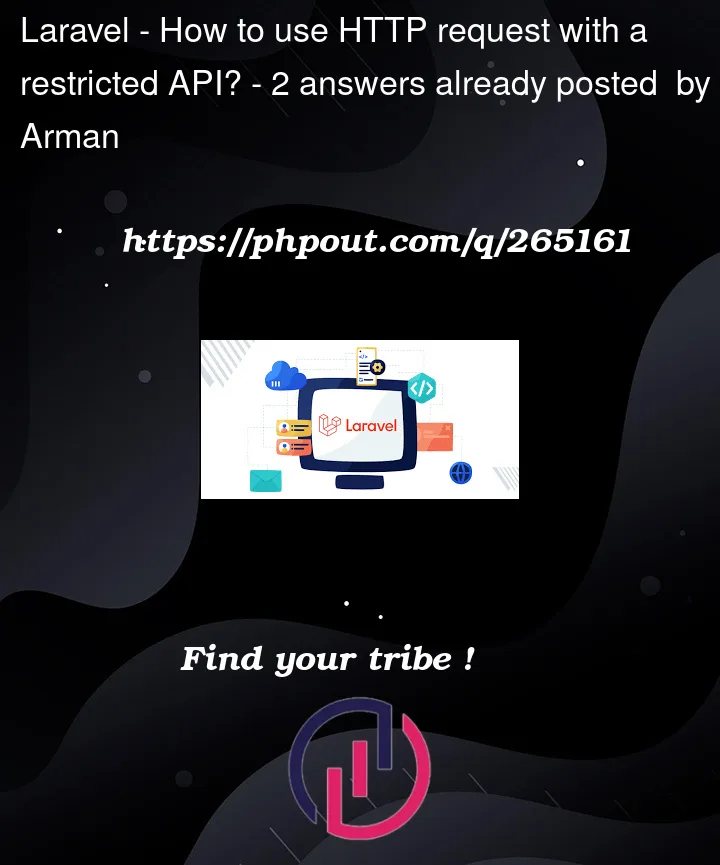In my app there is a code that uses HTTP Client and the API is accessible only by IPsec VPN like FortiClient VPN with username and password, When I use it locally on my PC it works fine but when I transfer the app to host the request will be timeout. Is there any options I forgot?:
$response = Http::get('http://example.com');




2
Answers
Using the Laravel HTTP Client, use a proxy for your request.
If your HTTP requests work locally but timeout when your application is hosted, it could be due to network configuration issues or firewall rules on the hosting environment. Here are some steps to consider when dealing with this issue:
Check VPN Connection: Ensure that the host server where your application is running has an active and properly configured FortiClient VPN connection. Without the VPN connection, the server may not have access to the target API.
Firewall Rules: If the host server has a firewall, make sure that it allows outbound traffic on the necessary ports and protocols required by your VPN and API. You might need to configure specific rules to permit traffic related to the FortiClient VPN and API.
DNS Configuration: Ensure that the DNS settings on your host server are correctly configured to resolve the API’s hostname to the appropriate IP address. If DNS resolution fails, it could lead to timeouts.
Network Routes: Verify that your host server can reach the API server over the VPN. Check the routing tables to ensure that traffic to the API server is correctly directed through the VPN tunnel.
VPN Client on the Host Server: Double-check that the FortiClient VPN client is installed and properly configured on the host server. The VPN client should be running and connected when your application makes requests to the API.
Timeout Settings: Adjust the timeout settings in your HTTP client. By default, HTTP client libraries have a timeout value for requests. You can increase this timeout to allow for longer response times. However, be cautious not to set it too high, as it could lead to performance issues.
Here’s an example of how to increase the timeout for the Laravel HTTP client:
a) Logging and Error Handling: Implement proper logging and error handling in your application to capture any errors or exceptions that occur during the HTTP request. This can help you diagnose issues more effectively.
b) Host Environment Configuration: Ensure that your hosting environment allows outbound requests on the necessary ports and protocols. Some hosting providers might restrict outgoing network access for security reasons.
c) Debugging: Use tools like Wireshark or tcpdump to capture network traffic on the host server while making the request. This can help you identify network-level issues.
d) Contact Hosting Support: If you’ve tried the above steps and still experience issues, consider reaching out to your hosting provider’s support team. They might be able to provide insights or assist with network configuration.
By addressing these potential issues and ensuring that your hosting environment is correctly set up for VPN access, you should be able to resolve the timeout problem and make successful requests to the API from your hosted application.
This is a common problem when moving code from local to deploying the app, as you are adding security/network issues and more to the solution.
Best of luck!